![]()
Logion 13: Jesus said," I am not your master. Because you have drunk, you have become intoxicated from the bubbling spring which I have measured out.”

Mar 21, 1923 - Feb 23, 2011
Shri Mataji Nirmala Devi was
Christian by birth, Hindu by
marriage, and Paraclete by duty.
"The Paraclete represents direct,
intimate divine intervention,
supporting and teaching
believers and challenging the
world, as Jesus did.” (D. Stevick
Jesus and His Own, 2011, 290)
“The essence of Christ's life was detachment and sacrifice. For a person who is detached, there is nothing like sacrifice. He sees His life as just a drama. Such a great personality came on this earth and created this so-called 'Christian' religion which has gone into wars, all kinds of hypocritical things, and now the people are discovering about it. He stood for Truth and Christians don't know what the Truth is. The Truth is that you are the Spirit and you have to become the Spirit. He is the One who has talked about second birth, of Realisation. But they have forgotten about what He said, what they have to achieve.Shri Mataji Nirmala Devi was
Christian by birth, Hindu by
marriage, and Paraclete by duty.
"The Paraclete represents direct,
intimate divine intervention,
supporting and teaching
believers and challenging the
world, as Jesus did.” (D. Stevick
Jesus and His Own, 2011, 290)
It is such a funny thing that all these great people came on this earth and created a proper religion for our ascent; and I don't know how people have become so stupid with the teachings of the so-called 'their masters'. It's all money-oriented. Apart from that, it's not standing on the Truth. I think this is the second crucifixion of this religion. There's no religion which is following, really, their principles as been described. I don't know how they manage to twist the Truth in this manner - just to make some money, or some fuss. Such a ritualistic stuff is going on in the name of Christ. Though they have faltered so many times, and they had experience of such a bad influence on the world, to the action we don't know why such a round-about things come up and people accept it - they just accept. You take any religion. These days Islam is talking, I don't know of what.
THE MOTHER: Messiah-Paraclete-Ruh-Devi
Christmas Puja, Ganapatipule, India—25 December 2001.
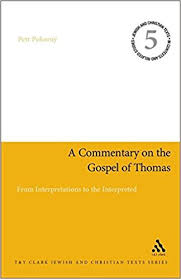
13 34,30b-35, 14a
(1) Jesus said to his disciples:
“Compare me and tell me whom I am like.”
(2) Simon Peter said to him:
(3) Matthew said to him:
“You are like an (especially) wise philosopher.”
(4) Thomas said to him:
“Teacher, my mouth
to say whom you are like.”
(5) Jesus said: “I am not your teacher.
For you have drunk, you become intoxicated
at the bubbling spring that I have measured out.”
(6) And he took him (and) withdrew,
(and) he said three words to him.
(7) But when Thomas came back to his companions,
they asked him: “What did Jesus say to you?”
(8) Thomas said to them: “If I tell you
one of the words he said to me,
you will pick up stones and throw them at me,
and fire will come out of the stones
(and) burn you up.”
“This is again a discussion of Jesus' true identity, as in Mark 8:27-30 parr. Peter is the first to answer the question of Jesus. He compares Jesus to a messenger. It must, nevertheless, be noted that the term angelos, taken over from Greek, may be used here in the specific sense of angel as a celestial being, a meaning quite common in the Hellenistic period (cf. Luke 2:9). In 1 John 1:5 Jesus is bearer of the message (Gr. angelia) that God is Light, but in Christian doctrine Jesus was clearly more than a messenger or angel. Unlike in Matt 16:16, here Peter's answer is evidently inadequate and serves to point up the superior answers of the other disciples. According to Luke 7:35 par. (Q), Jesus is wisdom itself.
According to Matthew Jesus is an (especially) wise philosopher. This may be considered a higher degree of comprehension of Jesus... But even Matthew's answer is insufficient.
It is Thomas with whom the series of answers culminates. He says that his mouth cannot say who Jesus is like. This is not flattery; it means that Jesus is like God himself. This is what Thomas has expressed in an apophatic (negative) way: God as ineffable, invisible, imperishable, and so forth. And so too is Jesus. This is the language of mystical movements throughout human history. It supposes that sinful human beings can bear God's presence only when that presence is revealed indirectly. Otherwise they would be killed by his holiness.
The title “Christ” (“the Anointed One”; Gr. christos, Hebr. masiah) is avoided, and the Thomas group did not use it. Effectively this meant that Thomas had reached the goal of any discipleship; that is, he had transcended it (I am not your teacher [log. 13:5]) and achieved a still closer, celestial, relation to Jesus and God as the Living One.
Drinking from a spring means obtaining true knowledge (log. 108; cf. John 4:10-14). In Acts of Thomas 147 the sober drunkenness (Lat. sobria ebrietas) mentioned is evidently mystical knowledge (Acts 2:13, 15f.). What Jesus says about Thomas in sentence 5 means that he has already reached the presence of God. Therefore, Jesus can say, “I am not your teacher.”
The three words from the sixth sentence remain a mystery. The opinions of scholars differ, although they agree that it was evidently an extremely significant revelation bringing Thomas near God. That it was a mystery from the very beginning and not only for us in the twenty-first century is confirmed by an allusion in the Acts of Thomas 47: “You told me three words with which I am inflamed, but which I cannot communicate to others,” says Thomas in a prayer praising Jesus as man and as God.
The spring is a metaphor for the source of life, at least according the Discourse on the Eight and Ninth (NHC VI/6, 58, 13-17).
Stoning was an old Jewish punishment for blasphemy; it is mentioned in early Christian literature and evidently illegally practised in Jesus' time (see John 8:5 [the woman caught in adultery]; Acts 7:54, 58f. [Stephen]).”
A Commentary on the Gospel of Thomas
Petr Pokorny, T&T Clark; Reprint edition (December 22, 2011) p. 54-5
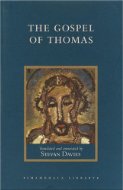
13. Jesus asked his disciples: Make a comparison; what am I like? Simon Peter replied: You are like a righteous messenger. Matthew replied: You are like an intelligent lover of wisdom. Thomas replied: Teacher, I cannot probably say what you are like.
Jesus said to Thomas: I am not your teacher; you have drunk from and become intoxicated from the bubbling water that I poured out.
Jesus took Thomas and they withdrew. Jesus said three things to him. When Thomas returned to the other disciples, they asked him: What did Jesus tell you?
Thomas replied: If I tell you even one of the sayings that he told me, you would pick up stones and throw them at me, and fire would come out of those stones and burn you up.
LINE 6: This saying is the only one that mentions Thomas at all, so it is probably the reason why the text was given the name and introductory comment that it now has. What Jesus is cannot be put into words. Because Thomas realizes this, he receives Jesus' highest approval.
LINE 10: Jesus' statement to Thomas: "I am not your teacher, you have drunk from and become intoxicated from the bubbling water that I poured out," brings to mind saying 108, which also refers to drinking from Jesus. These references may reveal an underlying metaphor: that Jesus' words are a fountain of wisdom. Even more than that, they show that Jesus and Thomas are no longer in a superior-inferior relationship but that they have become equivalent to each other. Both are, presumably, Sons of the living Father, as saying 3 reveals.
LINE 18: We do not know what the mysterious "three saying" or "three words" are that Jesus spoke to Thomas, but clearly they were utterances that would result in violent reaction, even from Jesus' own followers. They would have sounded blasphemous, for throwing stones was a prescribed punishment for blasphemy. Perhaps the "fire" Jesus is said to have thrown upon the world (saying 10) is the fire that would come out of the stones cast at Thomas.
Stevan Davies & Andrew Harvey, Gospel of Thomas Annotated and Explained Reviews, Skylights Path (2006) p. 11-13
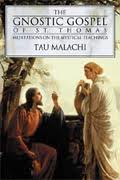
VERSE 13
Jesus said to his disciples," Compare me to someone and tell me whom I am like.”
Simon Peter said to him," You are like a righteous angel.”
Mathew said to him," You are like a wise philosopher.”
Thomas said to him," Master, my mouth is wholly incapable of saying whom you are like.”
Jesus said," I am not your master. Because you have drunk, you have become intoxicated from the bubbling spring which I have measured out.”
And he took him and withdrew and told him three things. When Thomas returned to his companions, they asked him," What did Jesus say to you?”
Thomas said to them," If I tell you one of the things which he told me, you will pick up stones and throw them at me, a fire will come out of the stones and burn you up.”
How you view an apostle of God determines the nature of the blessing you receive. If you view the apostle as an ordinary person like yourself, then you will receive the blessing of an ordinary person. If you believe the apostle is a sage, you will receive the blessing of a sage. If you perceive the apostle as a maggid, then you will receive the blessing of a maggid. Yet, if you realize the Spirit of the Messiah manifesting to you as the apostle and have faith in the Divine presence and power within and around the apostle, you will receive teachings and initiations from the soul of the Messiah itself. It is the one who is receiving who determines the nature of the blessing received. One can only receive what he or she has a capacity to receive. To receive more of the Divine power than you have a willingness and capacity for is to be injured spiritually!
Which levels of teachings and initiations are received depends entirely upon your relationship with the teacher and your view of them. The more psychically and spiritually intimate your relationship, and the more you are able to perceive and embrace your teacher as he or she truly is, the greater the transmission of teachings and initiations. Never is it the teacher who limits what can be shared and imparted. Rather, it is the capacity of the student or disciple that places a limit upon the love of a master—that is, a limit upon the Light-transmission.
Now, truly, one must be a student and companion before one can be a disciple. A true and faithful disciple is a rare and precious thing. Some masters never find one, others find only one or perhaps two, while only on rare occasions does a master live who finds several or many. Many may think they are disciples, but few are truly disciples, for a disciple is a most intimate lover of the Beloved and, by the nature of their love, incapable of thinking of oneself as separate from the master, let alone the Beloved. Such love and devotion are rare in this world.
To have a master is to serve the Master and accomplish the Master's divine labor. No longer does one live for oneself but for the sake of heaven. One lives for the Lord. It is a mystical death and transformation of oneself into the image of the Lord, an intimate embrace from which one will return—never to be the same. There is knowledge, understanding, and wisdom in this embrace, as well as Divine power. Those who enter the bridal chamber never depart once entering, for they are no more. The Beloved has come to manifest as them. "I"," me," and "mine," do not exist in the bridal chamber. There is only the Beloved. When you behold only the Beloved, then you and the Beloved will be one...
This verse, however, does not intend revelation of the secret teaching and initiation given. Rather, it is a teaching on discipleship and how one may pass from the outer to the inner and secret levels of the teachings, as well as the importance Yeshua placed upon initiation. All of the Master's teachings were based upon initiations or shared experiences through which faith bore the fruits of Gnosis. It is this awareness, more than anything else, that the verse is intended to convey.
Tau Malachi, The Gnostic Gospel of St. Thomas
Llewellyn Publications (June 8, 2004) pp. 11-13
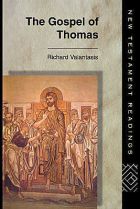
Saying 13
Jesus said to his disciples," Compare me to something and tell me what I am like.” Simon Peter said to him," You are like a just angel.” Matthew said to him," You are like a wise philosopher.” Thomas said to him," Teacher, my mouth is utterly unable to say what you are like.” Jesus said," I am not your teacher. Because you have drunk, you have become intoxicated from the bubbling spring that I have tended.” And he took him, and withdrew, and spoke three things to him. When Thomas came back to his friends, they asked him," What did Jesus say to you?” Thomas said to them," If I tell you one of the sayings he spoke to me, you will pick up rocks and stone me, and fire will come from the rocks and devour you.”
The small, narrated dialogue between Jesus and his disciples and between Thomas and Jesus' disciples functions at a number of different levels in a complex style which these sayings seem consistently to present themselves. There are three parts to the saying: the conversation of Jesus with the disciples generally and Simon Peter, Matthew, and Thomas specifically; the narrative relating the private revelation to Thomas; and the conversation between the disciples and Thomas.
Jesus' request of his disciples immediately presents a problem. It seems strange that Jesus, who has consistently been providing sayings of the disciples, the seekers, and the readers, asks them to characterize him. With so much of the thrust of interpretation of the sayings moving beyond easy categorization, Jesus' request to be categorized, compared, and summarized strikes the readers as unusual. The self-knowledge promulgated for the readers and seekers does not seem to have been pursued by the revealer. Something more is happening here; the question contradicts the dominant theology in this collection of sayings. Its presence here suggests some sort of alternative reading...
The first part of the saying sets up a hierarchy of understanding of Jesus among his disciples. Simon Peter and Matthew are the most dominated by common understandings of Jesus: their characterizations of him as angel and philosopher neither warrants a response from Jesus nor indicate that they know Jesus very well. Thomas' response takes precedence over theirs. Thomas has drunk from that bubbling spring and recognizes that language cannot articulate the experience. Thomas' understanding takes precedence over the other disciples' seemingly inappropriate attempts to categorize Jesus.
The narrative that follows this conversation describes what happened next: Jesus "took him, and withdrew, and spoke three sayings to him.” Clearly this indicates a special revelation to Thomas, so that Thomas' positive response warrants also a private revelation. The language of "Withdrawal" implies a sort of drawing back, retiring, rest; it certainly suggests that the special revelation requires a different locus, if not a different frame of mind so that the receiver of the revelation will be prepared to understand. The fact that the narrator states that there were sayings reduplicates the process of this collection of sayings: the narrator characterizes the process whereby special revelatory sayings are transmitted to particular people. It is a microcosm of the process whereby the sayings of this Gospel are being transmitted in a special textual locus to the readers/seekers. However, here the specific significance of the three sayings remains opaque...
The names in these sayings (see Walls 1962) are part of the strategy that was first encountered at the beginning of this collection of sayings. Didymos Judas Thomas provides the perspective through which the sayings of Jesus may be viewed; by the end of the collection, however, the title simply identifies Thomas as the authorizing agent for the Gospel. This collection of sayings refracts Thomas' ideology, and, therefore, his perspective pervades. In this saying, Thomas's perspective contrasts positively with the perspectives of other disciples who use more worldly categories for interpreting the sayings of Jesus. These sayings are a locus of contestation and conflict, even though the perspective of Thomas assures both private revelation and a new locus of revelation.
Richard Valantasis, The Gospel of Thomas
Routledge; 1 edition (June 27, 1997) pp. 74-77
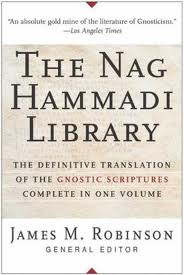
"Scholars investigating the Nag Hammadi find discovered that some of the texts tell the origin of the human race in terms very different from the usual reading of Genesis: the Testimony of Truth, for example, tells the story of the Garden of Eden from the viewpoint of the serpent! Here the serpent, long known to appear in Gnostic literature as the principle of divine wisdom, convinces Adam and Eve to partake of knowledge while 'the Lord' threatens them with death, trying jealously to prevent them from attaining knowledge, and expelling them from Paradise when they achieve it. Another text, mysteriously entitled The Thunder, Perfect Mind, offers an extraordinary poem spoken in the voice of a feminine divine power:
For I am the first and the last.
I am the honored one and the scorned one.
I am the whore and the holy one.
I am the wife and the virgin....
I am the barren one, and many are her sons....
I am the silence that is incomprehensible....
I am the utterance of my name.
These diverse texts range, then, from secret gospels, poems, and quasi-philosophic descriptions of the origin of the universe, to myths, magic, and instructions for mystical practice.
Why were these texts buried-and why have they remained virtually unknown for nearly 2,000 years? Their suppression as banned documents, and their burial on the cliff at Nag Hammadi, it turns out, were both part of a struggle critical for the formation of early Christianity. The Nag Hammadi texts, and others like them, which circulated at the beginning of the Christian era, were denounced as heresy by orthodox Christians in the middle of the second century. We have long known that many early followers of Christ were condemned by other Christians as heretics, but nearly all we knew about them came from what their opponents wrote attacking them...
This campaign against heresy involved an involuntary admission of its persuasive power; yet the bishops prevailed. By the time of the Emperor Constantine's conversion, when Christianity became an officially approved religion in the fourth century, Christian bishops, previously victimized by the police, now commanded them. Possession of books denounced as heretical was made a criminal offense. Copies of such books were burned and destroyed. But in Upper Egypt, someone; possibly a monk from a nearby monastery of St. Pachomius, took the banned books and hid them from destruction—in the jar where they remained buried for almost 1,600 years.
But those who wrote and circulated these texts did not regard themselves as 'heretics'. Most of the writings use Christian terminology, unmistakably related to a Jewish heritage. Many claim to offer traditions about Jesus that are secret, hidden from 'the many' who constitute what, in the second century, came to be called the 'catholic church.' These Christians are now called gnostics, from the Greek word gnosis, usually translated as 'knowledge.' For as those who claim to know nothing about ultimate reality are called agnostic (literally, 'not knowing'), the person who does claim to know such things is called gnostic ('knowing'). But gnosis is not primarily rational knowledge. The Greek language distinguishes between scientific or reflective knowledge ('He knows mathematics') and knowing through observation or experience ('He knows me'), which is gnosis. As the gnostics use the term, we could translate it as 'insight,' for gnosis involves an intuitive process of knowing oneself. And to know oneself, they claimed, is to know human nature and human destiny. According to the gnostic teacher Theodotus, writing in Asia Minor (c. 140-160), the gnostic is one has come to understand who we were, and what we have become; where we were... whither we are hastening; from what we are being released; what birth is, and what is rebirth.
Yet to know oneself, at the deepest level, is simultaneously to know God; this is the secret of gnosis. Another gnostic teacher, Monoimus, says:
Abandon the search for God and the creation and other matters of a similar sort. Look for him by taking yourself as the starting point. Learn who it is within you who makes everything his own and says, 'My God, my mind, my thought, my soul, my body.' Learn the sources of sorrow:, joy, love, hate ... If you carefully investigate these matters you will find him in yourself.
What Muhammad Ali discovered at Nag Hammadi is, apparently, a library of writings, almost all of them gnostic. Although they claim to offer secret teaching, many of these texts refer to the Scriptures of the Old Testament, and others to the letters of Paul and the New Testament gospels. Many of them include the same dramatic personae as the New Testament—Jesus and his disciples. Yet the differences are striking.
Orthodox Jews and Christians insist that a chasm separates humanity from Its creator: God is wholly other. But some of the gnostics who wrote these gospels contradict this: self-knowledge is knowledge of God; the self and the divine are identical.
Second, the 'living Jesus' of these texts speaks of illusion and enlightenment, not of sin and repentance, like the Jesus of the New Testament. Instead of coming to save us from sin, he comes as a guide who opens access to spiritual understanding. But when the disciple attains enlightenment, Jesus no longer serves as his spiritual master: the two have become equal—even identical.
Third, orthodox Christians believe that Jesus is Lord and Son of God in a unique way: he remains forever distinct from the rest of humanity whom he came to save. Yet the gnostic Gospel of Thomas relates that as soon as Thomas recognizes him, Jesus says to Thomas that they have both received their being from the same source:
Jesus said, 'I am not your master. Because you have drunk, you have become drunk from the bubbling stream which I have measured out.... He who will drink from my mouth will become as I am: I myself shall become he, and the things that are hidden will be revealed to him.'
Does not such teaching—the identity of the divine and human, the concern with illusion and enlightenment, the founder who is presented not as Lord, but as spiritual guide—sound more Eastern than Western? Some scholars have suggested that if the names were changed, the 'living Buddha' appropriately could say what the Gospel of Thomas attributes to the living Jesus. Could Hindu or Buddhist tradition have influenced gnosticism?
The British scholar of Buddhism, Edward Conze, suggests that it had. He points out that 'Buddhists were in contact with the Thomas Christians (that is, Christians who knew and used such writings as the Gospel of Thomas) in South India.' Trade routes between the Greco- Roman world and the Far East were opening up at the time when gnosticism flourished (A.D. 80-200); for generations, Buddhist missionaries had been proselytizing in Alexandria. We note, too, that Hippolytus, who was a Greek speaking Christian in Rome (c. 225), knows of the Indian Brahmins—and includes their tradition among the sources of heresy:
There is ... among the Indians a heresy of those who philosophize among the Brahmins, who live a self-sufficient life, abstaining from (eating) living creatures and all cooked food ... They say that God is light, not like the light one sees, nor like the sun nor fire, but to them God is discourse, not that which finds expression in articulate sounds, but that of knowledge (gnosis) through which the secret mysteries of nature are perceived by the wise.
Could the title of the Gospel of Thomas—named for the disciple who, tradition tells us, went to India—suggest the influence of Indian tradition?
These hints indicate the possibility, yet our evidence is not conclusive. Since parallel traditions may emerge in different cultures at different times, such ideas could have developed in both places independently. What we call Eastern and Western religions, and tend to regard as separate streams, were not clearly differentiated 2,000 years ago. Research on the Nag Hammadi texts is only beginning: we look forward to the work of scholars who can study these traditions comparatively to discover whether they can, in fact, be traced to Indian sources.
Even so, ideas that we associate with Eastern religions emerged in the first century through the gnostic movement in the West, but they were suppressed and condemned by polemicists like Irenaeus. Yet those who called gnosticism heresy were adopting—consciously or not—the viewpoint of that group of Christians who called themselves orthodox Christians. A heretic may be anyone whose outlook someone else dislikes or denounces. According to tradition, a heretic is one who deviates from the true faith. But what defines that 'true faith'? Who calls it that, and for what reasons?
We find this problem familiar in our own experience. The term 'Christianity,' especially since the Reformation, has covered an astonishing range of groups. Those claiming to represent 'true Christianity' in the twentieth century can range from a Catholic cardinal in the Vatican to an African Methodist Episcopal preacher initiating revival in Detroit, a Mormon missionary in Thailand, or the member of a village church on the coast of Greece. Yet Catholics, Protestants, and Orthodox agree that such diversity is a recent—and deplorable—development. According to Christian legend, the early church was different. Christians of every persuasion look back to the primitive church to find a simpler, purer form of Christian faith. In the apostles' time, all members of the Christian community shared their money and property; all believed the same teaching, and worshipped together; all revered the authority of the apostles. It was only after that golden age that conflict, then heresy emerged: so says the author of the Acts of the Apostles, who identifies himself as the first historian of Christianity.
But the discoveries at Nag Hammadi have upset this picture. If we admit that some of these fifty-two texts represents early forms of Christian teaching, we may have to recognize that early Christianity is far more diverse than nearly anyone expected before the Nag Hammadi discoveries.
Contemporary Christianity, diverse and complex as we find it, actually may show more unanimity than the Christian churches of the first and second centuries. For nearly all Christians since that time, Catholics, Protestants, or Orthodox, have shared three basic premises. First, they accept the canon of the New Testament; second, they confess the apostolic creed; and third, they affirm specific forms of church institution. But every one of these-the canon of Scripture, the creed, and the institutional structure—emerged in its present form only toward the end of the second century. Before that time, as Irenaeus and others attest, numerous gospels circulated among various Christian groups, ranging from those of the New Testament, Matthew, Mark, Luke, and John, to such writings as the Gospel of Thomas, the Gospel of Philip, and the Gospel of Truth, as well as many other secret teachings, myths, and poems attributed to Jesus or his disciples. Some of these, apparently, were discovered at Nag Hammadi; many others are lost to us. Those who identified themselves as Christians entertained many—and radically differing- religious beliefs and practices. And the communities scattered throughout the known world organized themselves in ways that differed widely from one group to another.
Yet by A. D. 200, the situation had changed. Christianity had become an institution headed by a three-rank hierarchy of bishops, priests, and deacons, who understood themselves to be the guardians of the only 'true faith.' The majority of churches, among which the church of Rome took a leading role, rejected all other viewpoints as heresy. Deploring the diversity of the earlier movement, Bishop Irenaeus and his followers insisted that there could be only one church, and outside of that church, he declared, 'there is no salvation.' Members of this church alone are orthodox (literally, 'straight-thinking') Christians. And, he claimed, this church must be catholic—that is, universal. Whoever challenged that consensus, arguing instead for other forms of Christian teaching, was declared to be a heretic, and expelled. When the orthodox gained military support, sometime after the Emperor Constantine became Christian in the fourth century, the penalty for heresy escalated.”
James M. Robinson, The Nag Hammadi Library
HarperOne (October 12, 1990) pp. 3-6
THE APOCALYPSE OF THE SPIRIT-PARACLETE
The fulfillment of the promised divine eschatological instruction
“The original meaning of the word ‘apocalypse’, derived from the Greek apokalypsis, is in fact not the cataclysmic end of the world, but an ‘unveiling’, or ‘revelation’, a means whereby one gains insight into the present.” (Kovacs, 2013, 2) An apocalypse (Greek: apokalypsis meaning “an uncovering”) is in religious contexts knowledge or revelation, a disclosure of something hidden, “a vision of heavenly secrets that can make sense of earthly realities.” (Ehrman 2014, 59)
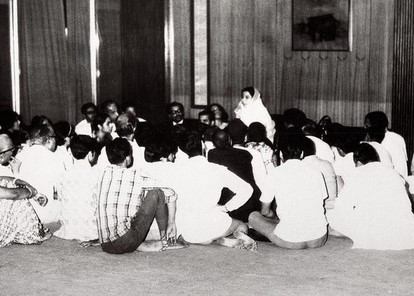
Shri Mataji Nirmala Devi (1923-2011) was Christian by birth, Hindu by marriage, and Paraclete by duty.
“The Paraclete will come (15:26; 16:7, 8, 13) as Jesus has come into the world (5:43; 16:28; 18:37)... The Paraclete will take the things of Christ (the things that are mine, ek tou emou) and declare them (16:14-15). Bishop Fison describes the humility of the Spirit, 'The true Holy Spirit of God does not advertise Herself: She effaces Herself and advertises Jesus.' ...
It is by the outgoing activity of the Spirit that the divine life communicates itself in and to the creation. The Spirit is God-in-relations. The Paraclete is the divine self-expression which will be and abide with you, and be in you (14:16-17). The Spirit's work is described in terms of utterance: teach you, didasko (14:26), remind you, hypomimnesko (14:26), testify, martyro (15:26), prove wrong, elencho (16:8), guide into truth, hodego (16:13), speak, laleo (16:13, twice), declare, anangello (16:13, 14, 15). The johannine terms describe verbal actions which intend a response in others who will receive (lambano), see (theoreo), or know (ginosko) the Spirit. Such speech-terms link the Spirit with the divine Word. The Spirit's initiatives imply God's personal engagement with humanity. The Spirit comes to be with others; the teaching Spirit implies a community of learners; forgetful persons need a prompter to remind them; one testifies expecting heed to be paid; one speaks and declares in order to be heard. The articulate Spirit is the correlative of the listening, Spirit-informed community.
The final Paraclete passage closes with a threefold repetition of the verb she will declare (anangello), 16:13-15. The Spirit will declare the things that are to come (v.13), and she will declare what is Christ's (vv. 14, 15). The things of Christ are a message that must be heralded...
The intention of the Spirit of truth is the restoration of an alienated, deceived humanity... The teaching role of the Paraclete tends to be remembered as a major emphasis of the Farewell Discourses, yet only 14:26 says She will teach you all things. (Teaching is, however, implied when 16:13-15 says that the Spirit will guide you into all truth, and will speak and declare.) Franz Mussner remarks that the word used in 14:26, didaskein, "means literally 'teach, instruct,' but in John it nearly always means to reveal.” (Stevick 2011, 292-7)
“The Paraclete will come (15:26; 16:7, 8, 13) as Jesus has come into the world (5:43; 16:28; 18:37)... The Paraclete will take the things of Christ (the things that are mine, ek tou emou) and declare them (16:14-15). Bishop Fison describes the humility of the Spirit, 'The true Holy Spirit of God does not advertise Herself: She effaces Herself and advertises Jesus.' ...
It is by the outgoing activity of the Spirit that the divine life communicates itself in and to the creation. The Spirit is God-in-relations. The Paraclete is the divine self-expression which will be and abide with you, and be in you (14:16-17). The Spirit's work is described in terms of utterance: teach you, didasko (14:26), remind you, hypomimnesko (14:26), testify, martyro (15:26), prove wrong, elencho (16:8), guide into truth, hodego (16:13), speak, laleo (16:13, twice), declare, anangello (16:13, 14, 15). The johannine terms describe verbal actions which intend a response in others who will receive (lambano), see (theoreo), or know (ginosko) the Spirit. Such speech-terms link the Spirit with the divine Word. The Spirit's initiatives imply God's personal engagement with humanity. The Spirit comes to be with others; the teaching Spirit implies a community of learners; forgetful persons need a prompter to remind them; one testifies expecting heed to be paid; one speaks and declares in order to be heard. The articulate Spirit is the correlative of the listening, Spirit-informed community.
The final Paraclete passage closes with a threefold repetition of the verb she will declare (anangello), 16:13-15. The Spirit will declare the things that are to come (v.13), and she will declare what is Christ's (vv. 14, 15). The things of Christ are a message that must be heralded...
The intention of the Spirit of truth is the restoration of an alienated, deceived humanity... The teaching role of the Paraclete tends to be remembered as a major emphasis of the Farewell Discourses, yet only 14:26 says She will teach you all things. (Teaching is, however, implied when 16:13-15 says that the Spirit will guide you into all truth, and will speak and declare.) Franz Mussner remarks that the word used in 14:26, didaskein, "means literally 'teach, instruct,' but in John it nearly always means to reveal.” (Stevick 2011, 292-7)
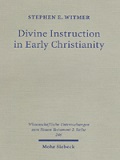
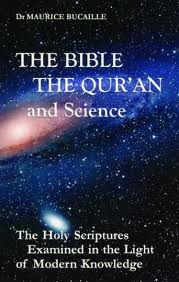
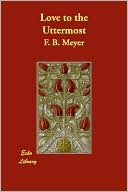
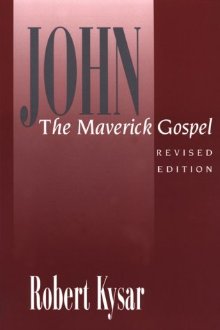
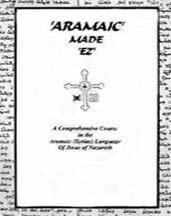
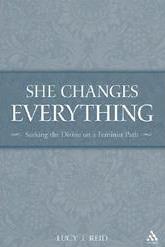
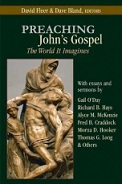
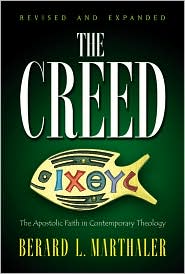
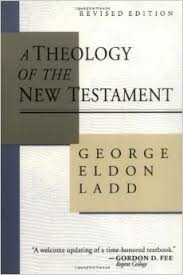
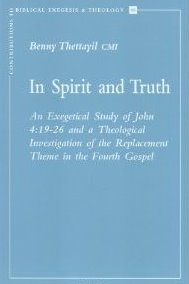

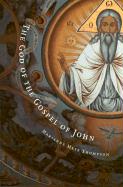
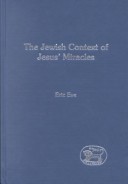
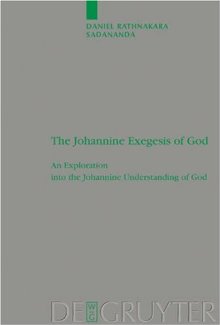

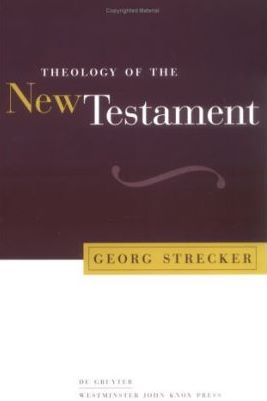
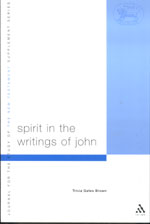
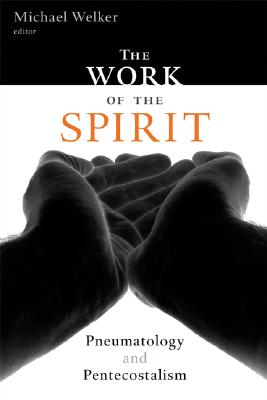
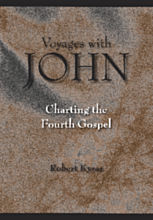
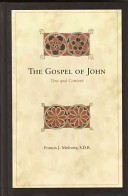
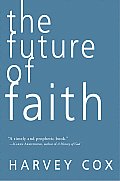
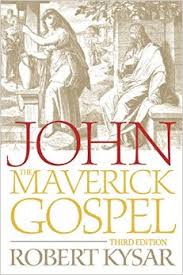
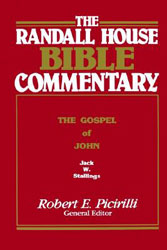

“The teaching of the Paraclete, as the continuation of Jesus' teaching, must also be understood as the fulfillment of the promise of eschatological divine instruction.”
Stephen E. Witmer, Divine instruction in Early Christianity
“Jesus therefore predicts that God will later send a human being to Earth to take up the role defined by John .i.e. to be a prophet who hears God's words and repeats his message to man.”
M. Bucaille, The Bible, the Qur'n, and Science
“And when Jesus foreannounced another Comforter, He must have intended a Person as distinct and helpful as He had been.”
F. B. Meyer, Love to the Utmost
“The Paraclete has a twofold function: to communicate Christ to believers and, to put the world on trial.”
Robert Kysar, John The Meverick Gospel
“But She—the Spirit, the Paraclete...—will teach you everything.”
Danny Mahar, Aramaic Made EZ)
“Grammatical nonsense but evidence of the theological desire to defeminize the Divine.”
Lucy Reid, She Changes Everything
“The functions of the Paraclete spelled out in verses 13-15... are all acts of open and bold speaking in the highest degree.”
David Fleer, Preaching John's Gospel
“The reaction of the world to the Paraclete will be much the same as the world's reaction was to Jesus.”
Berard L. Marthaler, The Creed: The Apostolic Faith in Contemporary Theology
Bultmann calls the “coming of the Redeemer an 'eschatological event,' 'the turning-point of the ages.”
G. Ladd, A Theology of the New Testament
“The Paraclete equated with the Holy Spirit, is the only mediator of the word of the exalted Christ.”
Benny Thettayil, In Spirit and Truth
“The divine Paraclete, and no lessor agency, must show the world how wrong it was about him who was in the right.”
Daniel B. Stevick , Jesus and His Own: A Commentary on John 13-17
Stephen Smalley asserts that “The Spirit-Paraclete ... in John's Gospel is understood as personal, indeed, as a person.”
Marianne Thompson, The God of the Gospel of John
“The Messiah will come and the great age of salvation will dawn (for the pious).”
Eric Eve, The Jewish context of Jesus' Miracles
“The remembrance is to relive and re-enact the Christ event, to bring about new eschatological decision in time and space.”
Daniel Rathnakara Sadananda, The Johannine Exegesis of God
“The Spirit acts in such an international situation as the revealer of 'judgment' on the powers that rule the world.”
Michael Welker, God the Spirit
The Paraclete's “Appearance means that sin, righteousness, and judgment will be revealed.”
Georg Strecker, Theology of the New Testament
“While the Spirit-Paraclete is the true broker, the brokers they rely on are impostors.”
T. G. Brown, Spirit in the writings of John
“The pneumatological activity ... of the Paraclete ... may most helpfully be considered in terms of the salvific working of the hidden Spirit.”
Michael Welker, The work of the Spirit
“The pneuma is the peculiar power by which the word becomes the words of eternal life.”
Robert Kysar, Voyages with John
“The gift of peace, therefore, is intimately associated with the gift of the Spirit-Paraclete.”
Francis J. Moloney, The Gospel of John
“This utopian hope, even when modestly expressed, links Jesus and the prophets to a much wider history of human longing.”
Harvey Cox, The Future of Faith
“Because of the presence of the Paraclete in the life of the believer, the blessings of the end-times—the eschaton—are already present.”
Robert Kysar, John
“They are going, by the Holy Spirit's power, to be part of the greatest miracle of all, bringing men to salvation.”
R. Picirilli, The Randall House Bible Commentary
“The Kingdom of God stands as a comprehensive term for all that the messianic salvation included... is something to be sought here and now (Mt. 6:33) and to be received as children receive a gift (Mk. 10:15 = Lk. 18:16-17).”
G. Ladd, A Theology of the New Testament
Stephen E. Witmer, Divine instruction in Early Christianity
“Jesus therefore predicts that God will later send a human being to Earth to take up the role defined by John .i.e. to be a prophet who hears God's words and repeats his message to man.”
M. Bucaille, The Bible, the Qur'n, and Science
“And when Jesus foreannounced another Comforter, He must have intended a Person as distinct and helpful as He had been.”
F. B. Meyer, Love to the Utmost
“The Paraclete has a twofold function: to communicate Christ to believers and, to put the world on trial.”
Robert Kysar, John The Meverick Gospel
“But She—the Spirit, the Paraclete...—will teach you everything.”
Danny Mahar, Aramaic Made EZ)
“Grammatical nonsense but evidence of the theological desire to defeminize the Divine.”
Lucy Reid, She Changes Everything
“The functions of the Paraclete spelled out in verses 13-15... are all acts of open and bold speaking in the highest degree.”
David Fleer, Preaching John's Gospel
“The reaction of the world to the Paraclete will be much the same as the world's reaction was to Jesus.”
Berard L. Marthaler, The Creed: The Apostolic Faith in Contemporary Theology
Bultmann calls the “coming of the Redeemer an 'eschatological event,' 'the turning-point of the ages.”
G. Ladd, A Theology of the New Testament
“The Paraclete equated with the Holy Spirit, is the only mediator of the word of the exalted Christ.”
Benny Thettayil, In Spirit and Truth
“The divine Paraclete, and no lessor agency, must show the world how wrong it was about him who was in the right.”
Daniel B. Stevick , Jesus and His Own: A Commentary on John 13-17
Stephen Smalley asserts that “The Spirit-Paraclete ... in John's Gospel is understood as personal, indeed, as a person.”
Marianne Thompson, The God of the Gospel of John
“The Messiah will come and the great age of salvation will dawn (for the pious).”
Eric Eve, The Jewish context of Jesus' Miracles
“The remembrance is to relive and re-enact the Christ event, to bring about new eschatological decision in time and space.”
Daniel Rathnakara Sadananda, The Johannine Exegesis of God
“The Spirit acts in such an international situation as the revealer of 'judgment' on the powers that rule the world.”
Michael Welker, God the Spirit
The Paraclete's “Appearance means that sin, righteousness, and judgment will be revealed.”
Georg Strecker, Theology of the New Testament
“While the Spirit-Paraclete is the true broker, the brokers they rely on are impostors.”
T. G. Brown, Spirit in the writings of John
“The pneumatological activity ... of the Paraclete ... may most helpfully be considered in terms of the salvific working of the hidden Spirit.”
Michael Welker, The work of the Spirit
“The pneuma is the peculiar power by which the word becomes the words of eternal life.”
Robert Kysar, Voyages with John
“The gift of peace, therefore, is intimately associated with the gift of the Spirit-Paraclete.”
Francis J. Moloney, The Gospel of John
“This utopian hope, even when modestly expressed, links Jesus and the prophets to a much wider history of human longing.”
Harvey Cox, The Future of Faith
“Because of the presence of the Paraclete in the life of the believer, the blessings of the end-times—the eschaton—are already present.”
Robert Kysar, John
“They are going, by the Holy Spirit's power, to be part of the greatest miracle of all, bringing men to salvation.”
R. Picirilli, The Randall House Bible Commentary
“The Kingdom of God stands as a comprehensive term for all that the messianic salvation included... is something to be sought here and now (Mt. 6:33) and to be received as children receive a gift (Mk. 10:15 = Lk. 18:16-17).”
G. Ladd, A Theology of the New Testament
“But today is the day I declare that I am the one who has to save the humanity. I declare I am the one who is Adishakti, who is the Mother of all the Mothers, who is the Primordial Mother, the Shakti, the desire of God, who has incarnated on this Earth to give its meaning to itself; to this creation, to human beings and I am sure through My Love and patience and My powers I am going to achieve it.
I was the one who was born again and again. But now in my complete form and complete powers I have come on this Earth not only for salvation of human beings, not only for their emancipation, but for granting them the Kingdom of Heaven, the joy, the bliss that your Father wants to bestow upon you.”
THE MOTHER: Messiah-Paraclete-Ruh
London, UK—December 2, 1979
“I am the one about which Christ has talked... I am the Holy Spirit who has incarnated on this Earth for your realization.”
THE MOTHER: Messiah-Paraclete-Ruh
New York, USA—September 30, 1981
“Tell all the nations and tell all the people all over the Great Message that the Time of Resurrection is here. Now, at this time, and that you are capable of doing it.”
THE MOTHER: Messiah-Paraclete-Ruh
Cowley Manor Seminar, UK—July 31, 1982
Guest: “Hello Mother.”
Shri Mataji: “Yes.”
Guest: “I wanted to know, is the Cool Breeze (Pneuma) that you have spoken about, you feel on the hands the Cool Wind of the Holy Spirit, as spoken about in the Bible?”
Shri Mataji: “Yes. Yes, yes, same thing, same thing. You have done the good job now, I must say.”
Interviewer: “Is it the Holy Spirit?”
Shri Mataji: “Yes, of course, is the Holy Spirit.”
Guest: “Aha... I am feeling it now on my hand through the [not clear]”
Shri Mataji: “It’s good.”
Interviewer: “Did you want to say anything more than that?”
Guest: “No, I just... That’s all I wanted to know because I...”
Shri Mataji: “Because you are thoughtless now. Enjoy yourself.”
Guest: “Thank you.”
THE MOTHER: Messiah-Paraclete-Ruh-Devi
Talkback Radio 2UE, Sydney, Australia—March 31, 1981
(The guest experienced the Cool Breeze [Pneuma/Prana/Chi] of the Spirit through the baptism [second birth by Spirit/Kundalini awakening]” given by the Comforter Shri Mataji over the radio. )
Second Guest: “I just want to ask Mother about a quotation from the Bible.”
Interviewer: “Yes, what’s that?”
Guest: “It says, ‘But the comfort of the Holy Spirit that the Father will send in My name would teach you all things.’ I would like to ask Her about that.”
Interviewer: “Could you just repeat the quotation again?”
Guest: “But the Comforter, the Holy Spirit, whom the Father will send in My name, will teach you all things.”
Interviewer: “And that’s from where?”
Guest: “John chapter 14, verse 26.”
Shri Mataji: “I think you should take your realization and then you will know the answer to it. Because, logically if it points out to one person, then you have to reach the conclusion, isn’t it? That’s a logical way of looking at things. But I am not going to say anything or claim anything. It is better you people find out yourself.”
Interviewer: “Does that answer your question?”
Guest: “Is the, is the Comforter on the Earth at the present time? Has the Comforter incarnated? Mataji should be able to tell us this because She said that through these vibrations on Her hands, She ...”
Shri Mataji: “Yes, She is very much here and She’s talking to you now. Can you believe that?”
Guest: “Well, I feel something cool [Pneuma/Prana/Chi] on my hand. Is that some indication of the ...?”
Shri Mataji: “Yes, very much so. So that’s the proof of the thing. You’ve already started feeling it in your hands.”
Guest: “Can I?”
Shri Mataji: “Ask the question, ‘Mother, are you the Comforter?’”
Guest: “Mother, are you the Comforter?”
Shri Mataji: “Ask it thrice.”
Guest: “Mother, are you the Comforter?”
Shri Mataji: “Again.”
Guest: “Mother, are you the Comforter?”
Shri Mataji: “Now, what do you get?”
Guest: “Oh, I feel this kind of cool tingling [Pneuma/Prana/Chi] passing all through my body.”
Shri Mataji: “That’s the answer now.”
THE MOTHER: Messiah-Paraclete-Ruh-Devi
Talkback Radio 2UE, Sydney, Australia—March 31, 1981
(Another guest also experienced the Cool Breeze [Pneuma/Prana/Chi] of the Spirit through the baptism [second birth by Spirit/Kundalini awakening]” given by the Comforter Shri Mataji over the radio. )

Shri Mataji Nirmala Devi (1923-2011): Christian by birth, Hindu by marriage and Paraclete by duty.
“The Paraclete and the disciples (vv. 25-26): The theme of departure (cf. vv. 1-6; vv. 18-24) returns. There are two "times" in the experience of the disciples: the now as Jesus speaks to them (v. 25) and the future time when the Paraclete, the Holy Spirit, sent by the Father in the name of Jesus, will be with them (v. 26). The Paraclete will replace Jesus' physical presence, teaching them all things and recalling for them everything he has said (v. 26). As Jesus is the Sent One of the Father (cf. 4:34; 5:23; 24, 30, 37; 6:38-40; 7:16; 8:16, 18, 26; 12:44-49), so is the Paraclete sent by the Father. The mission and purpose of the former Paraclete, Jesus (cf. 14:13-14), who speaks and teaches "his own" will continue into the mission and purpose of the "other Paraclete" (cf. v. 16) who teaches and brings back the memory of all that Jesus has said. The time of Jesus is intimately linked with the time after Jesus, and the accepted meaning of a departure has been undermined. The inability of the disciples to understand the words and deeds of Jesus will be overcome as they "remember" what he had said (cf. 2:22) and what had been written of him and done to him (cf. 12:16). The "remembering" will be the fruit of the presence of the Paraclete with the disciples in the in-between-time. In v. 16 Jesus focused on the inability of the world to know the Paraclete, but in v. 26 the gift of the Paraclete to "his own" is developed. As Jesus was with the disciples (v. 25), so will the Paraclete be with the disciples in the midst of hostility and rejection (v. 16). As the story has insisted that Jesus' teaching has revealed God to his disciples, so will the Paraclete recall and continue Jesus' revelation of God to the disciples (v. 26).” (Harrington 1998, 412)
“The Paraclete and the disciples (vv. 25-26): The theme of departure (cf. vv. 1-6; vv. 18-24) returns. There are two "times" in the experience of the disciples: the now as Jesus speaks to them (v. 25) and the future time when the Paraclete, the Holy Spirit, sent by the Father in the name of Jesus, will be with them (v. 26). The Paraclete will replace Jesus' physical presence, teaching them all things and recalling for them everything he has said (v. 26). As Jesus is the Sent One of the Father (cf. 4:34; 5:23; 24, 30, 37; 6:38-40; 7:16; 8:16, 18, 26; 12:44-49), so is the Paraclete sent by the Father. The mission and purpose of the former Paraclete, Jesus (cf. 14:13-14), who speaks and teaches "his own" will continue into the mission and purpose of the "other Paraclete" (cf. v. 16) who teaches and brings back the memory of all that Jesus has said. The time of Jesus is intimately linked with the time after Jesus, and the accepted meaning of a departure has been undermined. The inability of the disciples to understand the words and deeds of Jesus will be overcome as they "remember" what he had said (cf. 2:22) and what had been written of him and done to him (cf. 12:16). The "remembering" will be the fruit of the presence of the Paraclete with the disciples in the in-between-time. In v. 16 Jesus focused on the inability of the world to know the Paraclete, but in v. 26 the gift of the Paraclete to "his own" is developed. As Jesus was with the disciples (v. 25), so will the Paraclete be with the disciples in the midst of hostility and rejection (v. 16). As the story has insisted that Jesus' teaching has revealed God to his disciples, so will the Paraclete recall and continue Jesus' revelation of God to the disciples (v. 26).” (Harrington 1998, 412)
“This is the transformation that has worked, of which Christ has talked, Mohammed Sahib has talked, everybody has talked about this particular time when people will get transformed.”
THE MOTHER: Messiah-Paraclete-Ruh
Chistmas Puja, Ganapatipule, India—25 December 1997
“The Resurrection of Christ has to now be collective Resurrection. This is what is Mahayoga. Has to be the collective Resurrection.”
THE MOTHER: Messiah-Paraclete-Ruh
Easter Puja, London, UK—11 April 1982
“Today, Sahaja Yaga has reached the state of Mahayoga, which is en-masse evolution manifested through it. It is this day’s Yuga Dharma. It is the way the Last Judgment is taking place. Announce it to all the seekers of truth, to all the nations of the world, so that nobody misses the blessings of the divine to achieve their meaning, their absolute, their Spirit.”
THE MOTHER: Messiah-Paraclete-Ruh
MAHA AVATAR, ISSUE 1, JUL-SEP 1980
“The main thing that one has to understand is that the time has come for you to get all that is promised in the scriptures, not only in the Bible but all all the scriptures of the world. The time has come today that you have to become a Christian, a Brahmin, a Pir, through your Kundalini awakening only. There is no other way. And that your Last Judgment is also now.”
THE MOTHER: Messiah-Paraclete-Ruh
“You see, the Holy Ghost is the Mother. When they say about the Holy Ghost, She is the Mother... Now, the principle of Mother is in every, every scripture — has to be there. Now, the Mother's character is that She is the one who is the Womb, She is the one who is the Mother Earth, and She is the one who nourishes you. She nourishes us. You know that. And this Feminine thing in every human being resides as this Kundalini.”
THE MOTHER: Messiah-Paraclete-Ruh-Devi
Radio Interview, Santa Cruz, USA—1 October 1983
“But there is a Primordial Mother which was accepted by all the religions; even the Jews had it... In India, this is called as Adi Shakti. In every religion they had this Mother who was the Primordial Mother.”
THE MOTHER: Messiah-Paraclete-Ruh-Devi
TV Interview, Los Angeles, USA—11 October 1993

The Paraclete Shri Mataji (1923-2011)
Total number of Recorded Talks 3058, Public Programs 1178, Pujas 651 and Other (private conversations) 1249
“What are they awaiting but for the Hour to come upon them suddenly? Its Signs have already come. What good will their Reminder be to them when it does arrive?” (Qur'n, 47:18) “As the above verse indicates, God has revealed some of Doomsday's signs in the Qur'n. In Surat az-Zukhruf 43:61, God informs us that 'He [Jesus] is a Sign of the Hour. Have no doubt about it...' Thus we can say, based particularly on Islamic sources but also on the Old Testament and the New Testament, that we are living in the End Times.” Harun Yahya
Good News (An Naba) of Resurrection (Al-Qiyamah): Videos 3474, Audios 1945, Transcripts 3262 and Events 2413
“Concerning what are they disputing?
Concerning the Great News. [5889]
About which they cannot agree.
Verily, they shall soon (come to) know!
Verily, verily they shall soon (come to) know!”
surah 78:1-5 An Naba (The Great News)
5889. Great News: usually understood to mean the News or Message of the Resurrection.
Total number of Recorded Talks 3058, Public Programs 1178, Pujas 651 and Other (private conversations) 1249
“What are they awaiting but for the Hour to come upon them suddenly? Its Signs have already come. What good will their Reminder be to them when it does arrive?” (Qur'n, 47:18) “As the above verse indicates, God has revealed some of Doomsday's signs in the Qur'n. In Surat az-Zukhruf 43:61, God informs us that 'He [Jesus] is a Sign of the Hour. Have no doubt about it...' Thus we can say, based particularly on Islamic sources but also on the Old Testament and the New Testament, that we are living in the End Times.” Harun Yahya
Good News (An Naba) of Resurrection (Al-Qiyamah): Videos 3474, Audios 1945, Transcripts 3262 and Events 2413
“Concerning what are they disputing?
Concerning the Great News. [5889]
About which they cannot agree.
Verily, they shall soon (come to) know!
Verily, verily they shall soon (come to) know!”
surah 78:1-5 An Naba (The Great News)
5889. Great News: usually understood to mean the News or Message of the Resurrection.
Abdullah Yusuf Ali, The Holy Qur'n
Amana Corporation, 1989
[Moderator]: “Any other questions?”
[Audience]: “Pardon me for asking this question, but, earlier you talked about the Resurrection and you mentioned about the scriptures, where like in the Hindus scriptures they talk about the Kalki Avatar who will come for the Resurrection, and for the Christians, I know they talk about the return of Christ and all the religions talk about this Resurrection and the belief in the coming of the Messiah. So I just want to know since you say you are going to give the resurrection to us, what is your station?”
Shri Mataji: “In Russia?”
[Audience]: “And are you the promised Messiah? Shri Mataji, are you?”
Shri Mataji: “I see now I am not going to tell you anything about myself, to be very frank. Because see Christ said He was the Son of God, and they crucified Him. I don't want to get crucified. You have to find out. When you become the Spirit you will know what I am. I don't want to say anything about myself.”
THE MOTHER: Messiah-Paraclete-Ruh
Toronto, Canada—October 5, 1993
“Jesus then goes on the offensive against the scribes and Pharisees, pronouncing seven woes against them (Matt. 23:1-36). The final woe identifiers them with all those in Israel's history who have murdered and opposed the prophets. From Abel to Zechariah, all the blood of the righteous will come on them as they typologically fulfill this pattern in the murder of Jesus (23:29-36). They are the wicked tenants who think to kill the son and take his inheritance (21:38). They are seed of the serpent, a brood of vipers (23:33). Their house (the temple?) is desolate, and they will not see Jesus again until they bless him as he comes in the name of the Lord (23:37-39). Somehow, through the judgments Jesus announces against them, salvation will apparently come even for the people of Israel. As Olmstead puts it, Matthew "dares to hope for the day when many of Israel's sons and daughters will embrace Israel's Messiah (23:39), and in that hope engages in a continued mission in her.”” Hamilton 2010, 377
“It is the Mother who can awaken the Kundalini, and that the Kundalini is your own Mother. She is the Holy Ghost within you, the Adi Shakti, and She Herself achieves your transformation. By any talk, by any rationality, by anything, it cannot be done.”
THE MOTHER: Messiah-Paraclete-Ruh-Devi
“She is your pure Mother. She is the Mother who is individually with you. Forget your concepts, and forget your identifications. Please try to understand She is your Mother, waiting for ages to give you your real birth. She is the Holy Ghost within you. She has to give you your realization, and She's just waiting and waiting to do it.”
THE MOTHER: Messiah-Paraclete-Ruh
Sydney, Australia—Mar 22 1981
“The Kundalini is your own mother; your individual mother. And She has tape-recorded all your past and your aspirations. Everything! And She rises because She wants to give you your second birth. But She is your individual mother. You don't share Her with anybody else. Yours is a different, somebody else's is different because the tape-recording is different. We say She is the reflection of the Adi Shakti who is called as Holy Ghost in the Bible.”
THE MOTHER: Messiah-Paraclete-Ruh-Devi
Press Conference July 08 1999—London, UK
“The Great Goddess is both wholly transcendent and fully immanent: beyond space and time, she is yet embodied within all existent beings; without form as pure, infinite consciousness (cit) ... She is the universal, cosmic energy known as Sakti, and the psychophysical, guiding force designated as the Kundalini (Serpent Power) resident within each individual. She is eternal, without origin or birth, yet she is born in this world in age after age, to support those who seek her assistance. Precisely to provide comfort and guidance to her devotees, she presents herself in the Devi Gita to reveal the truths leading both to worldly happiness and to the supreme spiritual goals: dwelling in her Jeweled Island and mergence into her own perfect being.” (Brown, 1998, 2)
Disclaimer: Our material may be copied, printed and distributed by referring to this site. This site also contains copyrighted material the use of which has not always been specifically authorized by the copyright owner. We are making such material available to our readers under the education and research provisions of "fair use" in an effort to advance freedom of inquiry for a better understanding of religious, spiritual and inter-faith issues. The material on this site is distributed without profit. If you wish to use copyrighted material for purposes other than “fair use” you must request permission from the copyright owner.